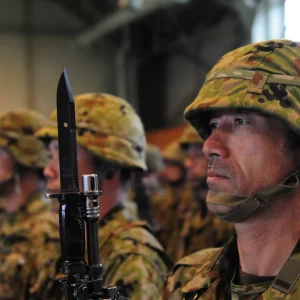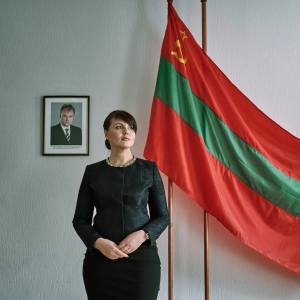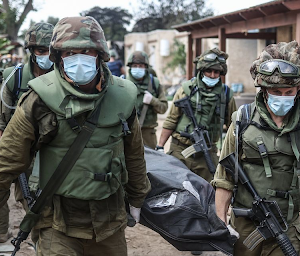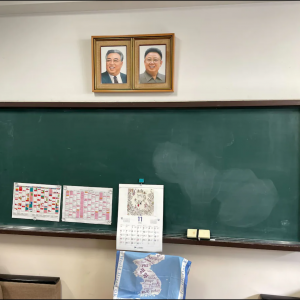
What a bitter runoff between Argentine frontrunners means for its democracy
At the first Democratic National Debate, Bernie Sanders knowingly quipped that people would be more prone to vote for him if they knew what a Democratic Socialist was. Sanders presents a new challenge for American voters, quick to stuff Bernie into the oft feared Socialist box. As the election season intensifies at home, it is easy—and, perhaps, convenient—to overlook presidential elections occurring in other parts of the world. But understanding election processes and party platforms in foreign countries might help American voters to understand their own candidates better. For American voters hoping to do their research, no country offers a better contrast to the American election than Argentina. Argentina had its first general election on October 25, and—for the first time in Argentine history—faces a close runoff vote in November. The impending runoff, and the candidates competing in it, might offer insight to American voters hoping to better understand our own changing political environment. It also has the potential to usher in a new era of legitimacy for a country where pure democracy has been historically just out of reach.
The 20th century witnessed the rapid rise and brutal fall of a country that most identify with cultural novelties and fútbol stars. The early century brought the boom of British investment and a burgeoning frozen meat industry; politicians espoused democratic rhetoric, safeguarding individual rights and ushering in an age of prosperity and growth. The Golden Age of the early 1990s soon dissolved into dictatorship, however, as a new, wealthy aristocracy systematically shut the lower classes out from political and economic opportunity, initiating a series of military governments that frequently transferred authority from one autocrat to the next. Colonel Perón and his wife, Eva Duarte, captured the spirit of working class dissatisfaction and frustration in 1946, mobilizing a popular movement to deconstruct the elite power structure of the Argentine military government. In the 1946 election, Perón rode this wave of populism into the Casa Rosada — the seat of Argentine government. Argentine politics have never been the same.
In Argentina, there is pre- and post- Peronism, the term coined to encapsulate the populist politics, socialist economics, conservative foreign involvement, and repressive internal governance that uniquely characterized Perónist policies. Perón fundamentally shaped Argentine politics, even in his exile during the 1950s and after his death, just before the Dirty War (1974-1983) saw a military junta overthrow Isabel Perón and disappear nearly 30,000 leftist dissenters and innocents. Perón remained in the political conversation in Argentina after the junta dissolved and democracy was reestablished; he remained, watchfully on the political scene, in the early 2000s, when Nestor Kirchner assumed the presidency under the banner of “Kirchnerismo”—a new “Peronismo,” that led to excessive government borrowing and a debt crisis that continues to embroil Argentina in inflation and default today. And Perón guided Cristina Fernandez de Kirchner, the incumbent Argentine president, into office after her husband passed.
The specter of Perón continues to haunt Argentina, for better or for worse. In modern Argentina, you are either “pro-K” or “anti-K” — there is no in-between. Consolidating power and popular support has often meant the use of corruption and force as a tool for Argentine executives, hoping to overcome this polarizing division in public opinion by quelling dissidents. Many accuse President Fernandez of authorizing the clandestine murder of prosecutor Alberto Nisman in early 2015. Nisman had been scheduled to present damning evidence concerning the 1994 AMIA case, in which the Argentine Israelite Mutual Association Building was bombed, against the incumbent presidenta the next day. He was found dead in his bathtub later that night. Argentine state controlled media called it a suicide—and news of the event quickly dissipated. Another example includes recent elections in Tucumán, a province to the North of Argentina, which were largely considered rigged. Public opinion and social media raged over the corruption in Tucumán, yet again, nothing changed. In Argentina, it rarely does.
If this is the environment in which Argentine politics exist today, one might be loath to call Argentina a legitimate democracy. Yet Argentina has obligatory voting for every citizen, and guards its national character and patriotism like a flame. So what makes Argentina democratic?
The current election has the potential to restore some legitimacy to Argentine democracy, and the economic and diplomatic benefits that come with it. For the first time in decades, Argentines are being asked to choose between two strong candidates with very different policy views, allowing voters legitimate choice. Daniel Scioli, a center left candidate, and Mauricio Macri, a more conservative choice, each brought in 36.7% and 34.5% of the vote, respectively, in the October general election. Argentine law requires that a successful candidate receive at least 45% of the vote, with a 10% differential between themselves and the other candidates. As this did not occur, a runoff—and an opportunity for Argentina to reclaim its democracy—is eminent.
President Fernandez hand-picked Scioli as her protégé at the start of the race. As a result, Scioli was considered a shoo-in from the start. With government backing, Scioli runs on a platform to maintain policies implemented during the Kirchner regime, during which social spending on anti-poverty programs increased significantly. However, Mauricio Macri demonstrates that voters may be ready for a change of governing style. His strong showing represents public interest in his plan to boost the Argentine economy by attracting foreign investment, induce market-oriented changes to spur growth, and loosen currency controls to drive down inflation. Both candidates pledge to approach politics more moderately than their predecessor, whose scathing rhetoric divided the country into the staunchly pro- and anti-K factions visible today.
The opportunity for corruption to sneak its way into the November runoff is high, transforming a relatively clean — at least, compared to previous Argentine elections — race into una trampa, a farce. Yet if voters can mobilize for the opposition and successfully reject Kirchner’s heavy hand, they will have achieved far more for their democracy than a new president. Argentina and the United States share vastly different political histories, yet comparisons might be drawn between the two countries as they each face monumental elections. Both Argentina and the U.S. have the opportunity to continue with the status quo, or to accept radical change by electing fundamentally different executives. In both scenarios, eyeing the Argentine election might provide conflicted Americans with some guidance and a lesson about reinventing democracy during a moment of severe political stagnation. Looking to Argentina may provide a sense of mutual understanding between two cultures that are at once so different, yet surprisingly the same in the immense political decision that they must soon make.





Be First to Comment